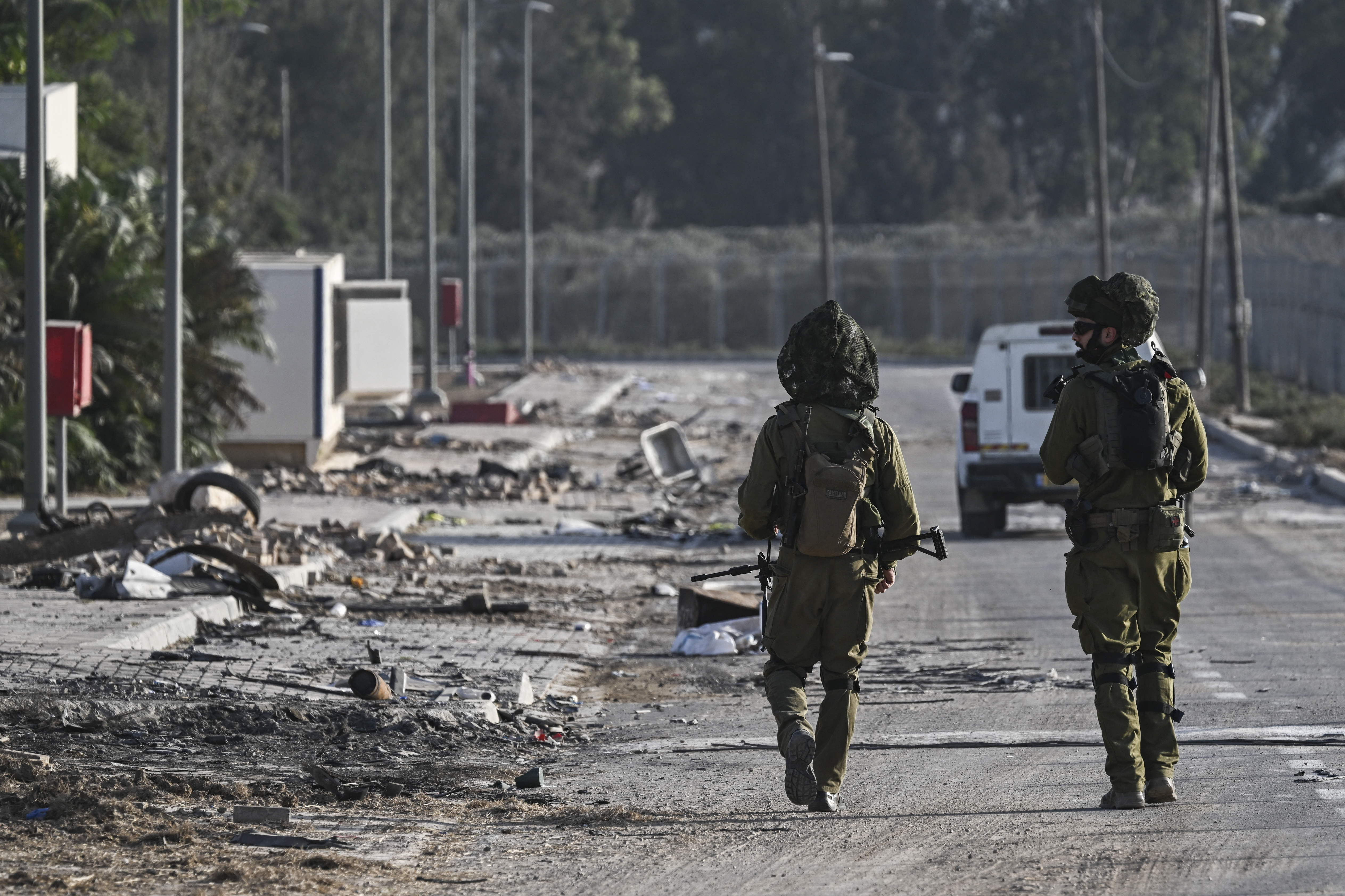At its core, Zionism is an attempt to create a safe space for Jewish people. Its ideology was born during a period when minorities across Europe were crafting new ways to secure their cultural and religious autonomy. In the case of the Jewish people, who have been persecuted for centuries, safety was a prerequisite for any theory of national liberation. Despite their preoccupation with Jewish national liberation, early Zionist thinkers gave little thought to how indigenous Palestinians might react to the creation of a Jewish state on their land.
As it became clear that peaceful coexistence would be a challenge, right-wing Zionists argued that the only way to develop security for the Jewish state (and, by extension, the Jewish people) would be through military force. This idea, known as the “Iron Wall,” would become foundational for Israeli leaders. When Hamas gunmen attacked civilians in Israel on October 7, more than 70 years since the creation of this strategy, the Iron Wall was effectively destroyed.
Ze’ev Jabotinsky, the founder of revisionist Zionism, a hard right version of the ideology that favored maximum expansion of the Israeli state, is credited with creating the Iron Wall concept. He argued that a voluntary peace agreement with Palestinians was “unattainable.” Therefore, Jabotinsky wrote in 1923, Zionists “must either suspend our settlement efforts or continue them without paying attention to the mood of the natives. Settlement can thus develop under the protection of a force that is not dependent on the local population, behind an iron wall which they will be powerless to break down.”
In Jabotinsky’s polarized logic, it was hypocritical and harmful for Zionists to express any willingness to negotiate with Palestinians. Jabotinsky’s ideas permeated the minds of Israeli leaders on all sides of the political spectrum to become the de facto policy of the early state. After all, Israel’s raison d’etre centers on creating a safe and secure Jewish homeland.
When the state was founded in 1948, and more than 750,000 Palestinians were forcibly removed from their homes, Israel created a matrix of control over Palestinian life. Walls, fences, and intelligence gathering formed the basis of the Iron Wall, separating the Jewish state from the rest of the region. The need to defend their land from returning Palestinian refugees is another core concept in the Israeli psyche. Everything begins from this principle of defense.
On October 7, everything changed. When Hamas militants, many of whom are descendants of Palestinian refugees, streamed across the border walls separating Israel from Gaza, the army was nowhere to be found. Israelis suffered unspeakable horrors at the hands of militants for hours with no help from the state.
The foundation of Israel’s social contract with its citizens – that the army and security forces will prevent refugees from coming back and murdering them in their homes – was broken. The Iron Wall was breached in a fashion Israelis didn’t think was possible. Even Hamas was shocked at the fragility of the Israeli military.
What happens now? The core social contract has been shattered between Israelis, their government, and the basic conception of Zionism. There are few excuses that Israeli leaders can make to explain this colossal failure. Until October 7, Israel’s elaborate machine of control over Palestinian life had been humming along quietly. Israel was lulled into a false sense of security for several years. The entire premise of occupying Palestinian land as a security backstop doesn’t work.
Now that the Iron Wall has been breached, what happens to the basic founding premise of the Jewish state? Namely, that Israel can and will protect Jews from horrific attacks. How can the government restore this social contract? How can it restore faith in its ability to protect? Answering these difficult questions will take some time, but the Israeli leadership’s initial response hasn’t been encouraging. While the Israeli public relations apparatus has been quick to cast the attack on Israeli civilians as an attack on all Jews, no senior Israeli leader has resigned.
Prime Minister Benjamin Netanyahu, who most Israelis single out as the primary person responsible for this failure, could announce special elections in six months after the fighting calms down and say that he won’t seek reelection. This hasn’t happened and there are no indications that it will. Moreover, the Israeli military has ramped up the drumbeat of war for a ground invasion in Gaza instead of focusing on freeing the hostages held by Hamas. History has shown that ground invasions in Gaza achieve few lasting results. They have been there and done that.
Ultimately, Israel doesn’t have the answer right now because the solution involves completely unraveling the country’s occupation and control over Palestinian life. The country has sold the occupation as an unavoidable measure to ensure Israeli security in the rubric of the Iron Wall logic. It doesn’t work.
Israel has one of the most advanced militaries on Earth and a robust intelligence apparatus. Yet, the hubris that comes with occupying Palestinians for decades demonstrates how those tools don’t work to deliver basic security.
Ironically, the best way to deliver the desired results of the Iron Wall is moving beyond the ideology of pure force to achieve an equitable settlement where all people between the Jordan River and the Mediterranean Sea have equal rights. We have seen what the status quo brings both people.
Joseph Dana is a writer based in South Africa and the Middle East. He has reported from Jerusalem, Ramallah, Cairo, Istanbul, and Abu Dhabi. He was formerly editor-in-chief of emerge85, a media project based in Abu Dhabi exploring change in emerging markets. X: @ibnezra

